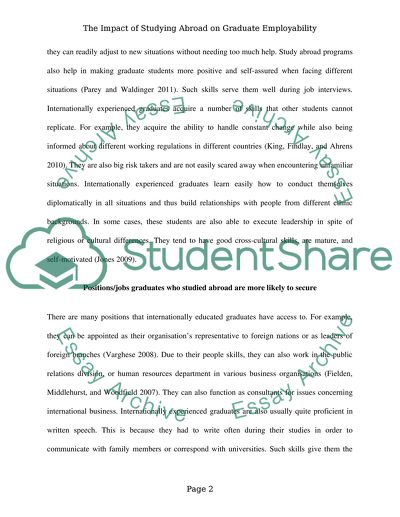Cite this document
(The Impact of Studying Abroad on Graduate Employability Essay, n.d.)
The Impact of Studying Abroad on Graduate Employability Essay. Retrieved from https://studentshare.org/education/1487877-the-impact-of-studying-abroad-on-graduate
The Impact of Studying Abroad on Graduate Employability Essay. Retrieved from https://studentshare.org/education/1487877-the-impact-of-studying-abroad-on-graduate
(The Impact of Studying Abroad on Graduate Employability Essay)
The Impact of Studying Abroad on Graduate Employability Essay. https://studentshare.org/education/1487877-the-impact-of-studying-abroad-on-graduate.
The Impact of Studying Abroad on Graduate Employability Essay. https://studentshare.org/education/1487877-the-impact-of-studying-abroad-on-graduate.
“The Impact of Studying Abroad on Graduate Employability Essay”, n.d. https://studentshare.org/education/1487877-the-impact-of-studying-abroad-on-graduate.


